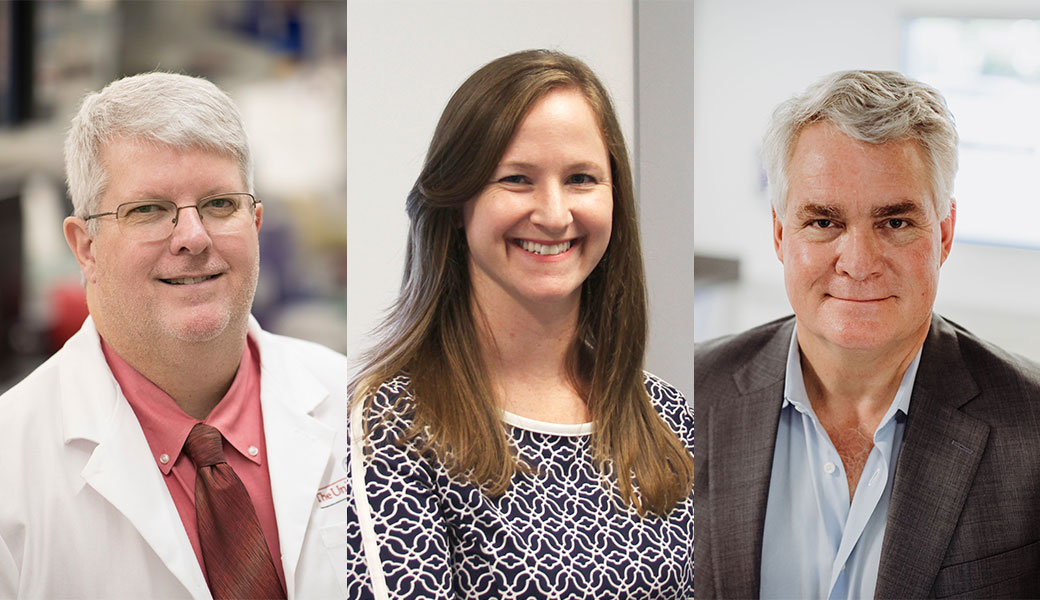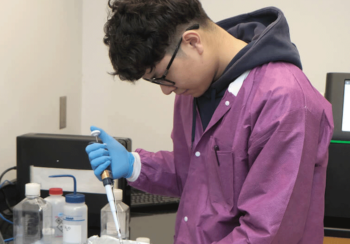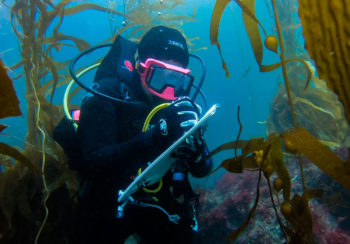UGA researchers Katie Ehrlich, Brad Phillips and Ted Ross were honored with the Presidents’ Award of Distinction for Team Science from the Georgia Clinical and Translational Science Alliance at a virtual conference held March 5.
The three UGA faculty were recognized for their interdisciplinary collaboration in studying immune responses to influenza vaccination, each from a different disciplinary perspective.
Georgia CTSA is a National Institutes of Health-funded initiative that brings together UGA, Emory University, Georgia Tech and the Morehouse School of Medicine to facilitate clinical and translational research and help spread the health benefits of such research to all areas of the state.
“I am proud of Drs. Ehrlich, Phillips and Ross for this recognition of their outstanding work,” said UGA President Jere W. Morehead. “UGA is pleased to be part of the Georgia Clinical and Translational Science Alliance, and we are grateful for the many ways it is helping us advance our research enterprise and expand our institution’s impact across the state.”
The Presidents’ Award, which carries $5,000 in funding for their team science research program, is given to multidisciplinary teams that conduct “innovative and impactful research that has, or will likely, advance clinical and translational science and positively impact human health,” according to Georgia CTSA.
“I’m thrilled that this research team spanning three of UGA’s colleges was selected for the Georgia CTSA Presidents’ Award, reflecting both the collaborative nature of their research and the value of what they’ve accomplished,” said David Lee, vice president for research. “We can only solve grand challenges by working across disciplinary boundaries, and Drs. Ehrlich, Phillips and Ross provide a great example for our faculty and students.”
Ross, a Georgia Research Alliance Eminent Scholar in the College of Veterinary Medicine and director of the Center for Vaccines and Immunology, has worked since 2016 with UGA’s Clinical and Translational Research Unit to conduct clinical trials related to flu vaccines. After coming to the university that same year, Ehrlich joined the team to study how life stressors shape immune response. Phillips, a professor in the College of Pharmacy and director of the Biomedical and Translational Sciences Institute, also came on board to investigate how sleep problems, including sleep apnea and disrupted sleep schedules, are associated with immune response.
“I believe our team’s efforts reflect the best of what team science can achieve,” said Ehrlich, assistant professor of psychology in the Franklin College of Arts and Sciences. “Ted, Brad and I have overlapping and unique interests related to the annual flu study cohorts, and the result is an interdisciplinary study that is larger and more complex than what we could achieve had we pursued independent projects.”
The nature of the team project creates benefits that would be much harder to attain had each researcher worked in isolation. For example, given the wide interest in flu vaccines, annual cohorts can include as many as 300 participants. Social science studies, Ehrlich said, typically include far fewer volunteers, and the larger numbers lend greater validity to her conclusions.
“As key factors are so varied, sometimes intertwined, across many different disciplines and areas of research, a team approach is really the only way to advance what we know and how we prevent and treat influenza,” said Phillips, who serves as UGA’s principal investigator on the Georgia CTSA grant. “Everyone adds important and unique components that are synergistic.”
Combined, the UGA trio has published multiple papers, delivered multiple conference presentations and research posters, and received multiple external awards related to their collaborative work on flu—not to mention attracting a significant amount of extramural funding.
In 2018, Ehrlich received the prestigious NIH New Innovator Award, a $1.5 million grant given to early-career researchers who propose innovative and high-risk research projects. One year later, Ross and a multi-institutional team were awarded an NIH contract worth up to $130 million to develop a “universal” flu vaccine that would be effective for multiple years and against multiple strains of flu.
“Effective collaborations with other scientists are the most rewarding and enjoyable type of research. Each of us has unique expertise that allows our research groups to uncover answers to complex scientific questions that we could not have done alone,” Ross said. “My group has been working on developing universal influenza vaccines for 15 years, but the last five years at UGA have yielded the most significant findings, which would not have been possible without the collaborations with Drs. Ehrlich and Phillips.”






